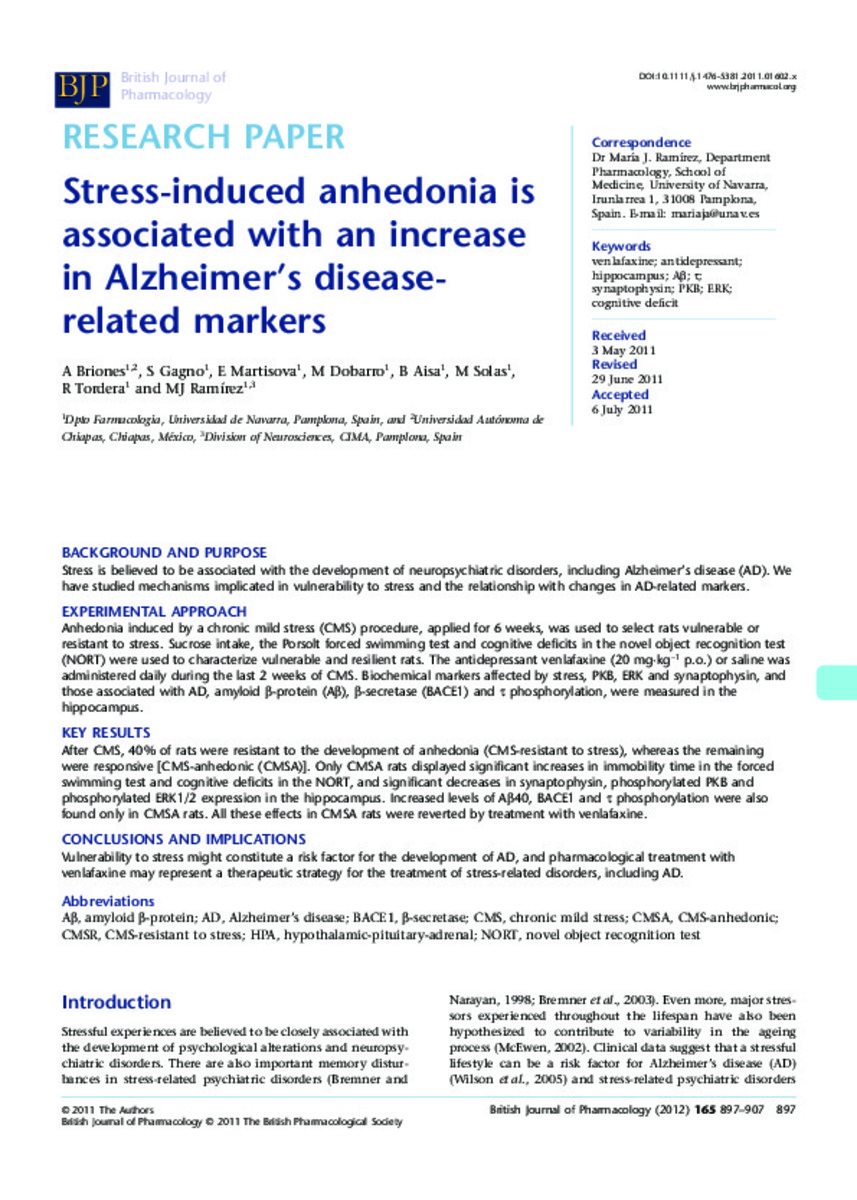Stress-induced anhedonia is associated to increased Alzheimer's disease markers
Palabras clave :
Stress
Alzehimer´s disease
Venlafaxine
Fecha de publicación :
2012
Editorial :
Wiley-Blackwell
Cita:
Briones A, Gagno S, Martisova E, Dobarro M, Aisa B, Solas M, et al. Stress-induced anhedonia is associated to increased Alzheimer's disease markers. Br J Pharmacol 2012 Feb;165(4):897-907.
Aparece en las colecciones:
Estadísticas e impacto
0 citas en

0 citas en

Los ítems de Dadun están protegidos por copyright, con todos los derechos reservados, a menos que se indique lo contrario.







